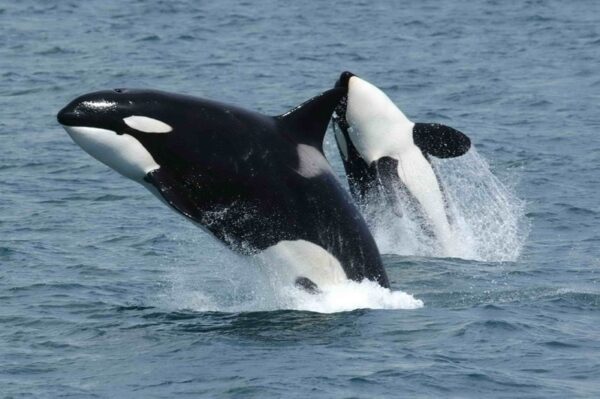A man sailing a yacht in the North Sea near Scotland’s Shetland Islands said that an orca repeatedly rammed into his boat, exhibiting behaviour that’s been recently seen in killer whales farther south.
This is the same behaviour that has been seen in the Iberian orca population, but it is the first time it has been known to happen in northern waters.
Experts believe this could be play among juvenile orcas. Dr Alfredo López, of the Grupo de Trabajo Orca Atlántica in Portugal, said: “We know that many boats use fishing lines from the stern to fish and it is a motivation for orcas, they come to examine them.” But the focus on boats’ rudders may come from adult whales who have developed an aversion towards boats, perhaps because they “had a bad experience and try to stop the boat so as not to repeat it”.
Most surprising is the fact that this learned behaviour should have appeared nearly 2,000 miles (3,200km) from Gibraltar. Dr Conor Ryan, a scientific adviser to the Hebridean Whale and Dolphin Trust, who has studied orca pods off the Scottish coast, said: “I’d be reluctant to say it cannot be learned from [the southern population]. It’s possible that this ‘fad’ is leapfrogging through the various pods/communities.”
Ryan suggests there may be “highly mobile pods that could transmit this behaviour a long distance”. López thinks, however, “that human activities, even in an indirect way, are at the origin of this behaviour”. Increased marine traffic, dwindling food sources, warming seas and noise pollution could all play a part.
Since the summer of 2020, scientists have recorded more than 500 incidents involving contact between the Iberian orcas and boats, including three that resulted in the vessels sinking. About 20 percent of the encounters damaged the boats so badly they could not continue sailing. And in one recent incident, a group of orcas in the Strait of Gibraltar followed a boat all the way into port, even after they’d destroyed its rudder.
